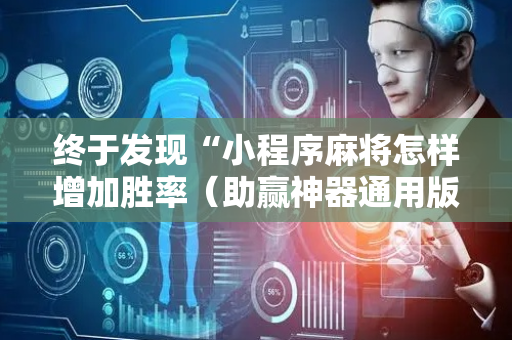您好:这款游戏是可以开挂的,软件加微信【添加图中微信】确实是有挂的,很多玩家在这款游戏中打牌都会发现很多用户的牌特别好,总是好牌,而且好像能看到其他人...
2025-06-28 0
TMTPOST — A Tencent Cloud excecutive said on Thursday that the Chinese tech giant is building comprehensive data-powered artificial intelligence capability and will launch a data agent product in the second half of this year.
Cheng Bin, the general manager of Tecent Cloud's Big Data Infrastructure Product Center, made the annoucement at the Global Artificial Intelligence Development and Application Conference.
Cheng said that data serves as the "crude oil" for both traditional data platforms and AI large model platforms. Data+AI is not simply the addition of data and AI, but rather a deep integration and innovation, marking a leap from "letting data speak" to "engaging in intelligent dialogue with data."
In 2024, China’s total domestic data production surpassed 40 ZB mark for the first time to 41.06 ZB, representing a year-on-year increase of 25%. Per capita data production reached approximately 31.31 terabytes (TB), equivalent to more than 10,000 HD movies per person, up 25.17% year-on-year. Both total and per capita data production have surged.
With the growing data demands of AI large models, traditional data platforms are facing severe challenges in meeting the new data requirements brought by generative AI. At the same time, in generative AI application scenarios, data quality, compliance, and security have become core issues for enterprises.
Enterprises are grappling with a surge in data sources and severe data silos (statistics show that companies manage an average of over 400 heterogeneous data sources). At the same time, they need to build dynamic and traceable data governance systems to avoid "hallucination outputs" and privacy risks.
According to Gartner’s predictions, by 2027, 80% of data and analytics (D&A) governance initiatives will become ineffective due to the absence of real or perceived crises. At the same time, IT spending focused on multi-structured data management will account for 40% of total IT expenditure on data management technologies and services.
Huang Shifei, the Vice President of Tencent Cloud and Head of Tencent Cloud’s Big Data Products, said that as AI capabilities become readily accessible, it is crucial for enterprises to awaken vast amounts of dormant unstructured data, bridge organizational silos, and ensure that the data fed to AI is high-quality and trustworthy, thereby avoiding hallucinations and risks.
Cheng pointed out that traditional data platforms are hitting bottlenecks in this new development cycle. The process from data mining to data training has become highly complex, driving up labor costs and lengthening the entire development cycle. From an objective perspective, the market focus has shifted from data engineering/science development to large models/Agents; in terms of usage, it has moved from people searching for data to Agents seeking data with specific questions; and in terms of platform positioning, it has evolved from a passive “data warehouse” to an active “knowledge substrate” that enables real-time querying and interaction by Agents.
Tencent Cloud Big Data has proposed the deep integration of “Data+AI,” aiming to build a natively unified Data+AI platform designed for the AI era—one that is data-driven and intelligence-oriented, to serve as the next-generation intelligent data platform and meet the evolving needs of the market and customers.
By integrating multimodal data processing, AI models, Data Agents, and more, Tencent Cloud is building a new-generation data intelligence platform, DIaaS. Through “Data+AI,” unstructured data can be effectively utilized, enabling all data to be understood by AI—so that data is not only stored, but also put to use. In Tencent Cloud’s view, DIaaS is not just a tool, but a capability that makes data intelligence as accessible as water, electricity, or gas.
During post-event discussions about the difference between “DataxAI” and “Data+AI,”Cheng noted that using the multiplication sign (x) suggests a desire for greater value creation. However, he believes that whether it’s addition or multiplication, the value of integrating Data and AI will only continue to grow in the future.
“Is the leap to the next generation of intelligent digital platforms driven by AI large models? Indeed, I believe there are two main reasons. First, the maturity of large language model technology has undoubtedly provided a better development path for data. Second, and most fundamentally, it comes down to demand. If users do not have such a need, or if the demand is minimal, then no matter how advanced the technology is, it cannot generate value,” Cheng explained.
Cheng emphasized that currently there are no AI big data startups in China that are comparable to Snowflake or Databricks.
He pointed out that after the advent of large models, many database companies have rapidly transformed into “Data+AI” companies. For example, both Snowflake and Databricks have successfully pivoted, with Databricks now valued at over $60 billion and Snowflake’s market cap reaching $74 billion. Their transformations appear to be quite successful. In contrast, there are no technically strong big data startups of this kind in China yet, but the future prospects are very promising.
“I think as soon as the second half of this year, we may see the emergence of new Data+AI companies in China that can benchmark against Snowflake and Databricks. We very much welcome this development—the more players in this track, the greater the possibilities. If we rely solely on ourselves, we may not be able to meet all the diverse customer needs,” Cheng said. He noted that building DIaaS is a long-term and systematic project that requires industry collaboration and joint exploration.
He predicts that with the arrival of the era of Artificial General Intelligence (AGI), AI agents may gradually disappear and be replaced by AI models. However, in the short term—over the next one to three years—agents can help users enhance the value of data assets.
As of now, there are over 190,000 enterprises in China’s data sector, with the data industry’s scale exceeding 2 trillion yuan.Based on an annual growth rate of over 20%, it is estimated that by 2030, China’s data industry will reach a scale of 7.5 trillion yuan.
(Note: 1 U.S. dollar equals 7.2 Yuan)
(Author: Lin Zhijia; Editor: Gai Hongda)
相关文章

您好:这款游戏是可以开挂的,软件加微信【添加图中微信】确实是有挂的,很多玩家在这款游戏中打牌都会发现很多用户的牌特别好,总是好牌,而且好像能看到其他人...
2025-06-28 0

快 讯 看 点1、梦芯科技发布全新一代北斗高精度芯片2、荣耀启动IPO,将于2026年1月至3月完成上市辅导3、创业板首家未盈利芯片企业大普微IPO4...
2025-06-28 0

证券日报网讯 熵基科技6月27日在互动平台回答投资者提问时表示,公司以多模态BioCV(计算机视觉与生物识别)与AI认知空间计算技术,构建人、车、物、...
2025-06-28 0

智东西作者 | 李水青编辑 | 心缘智东西6月28日报道,昨日深夜,阿里推出多模态统一理解与生成模型Qwen VLo。该模型不仅能够“看懂”世界,更能...
2025-06-28 0

文 | 趣解商业,作者 | 郝文,编辑 | 趣解商业AI组这是一款备受期盼却又姗姗来迟的AI智能眼镜。6月26日晚,小米集团(1810.HK)董事长兼...
2025-06-28 0

时间来到6月底,手机市场经历了上半年的新机发布,各家手机品牌的中端机型进行了更新迭代,综合来看,上半年的新机主要以各家手机厂商的中端机型为主,上半年最...
2025-06-28 0
发表评论